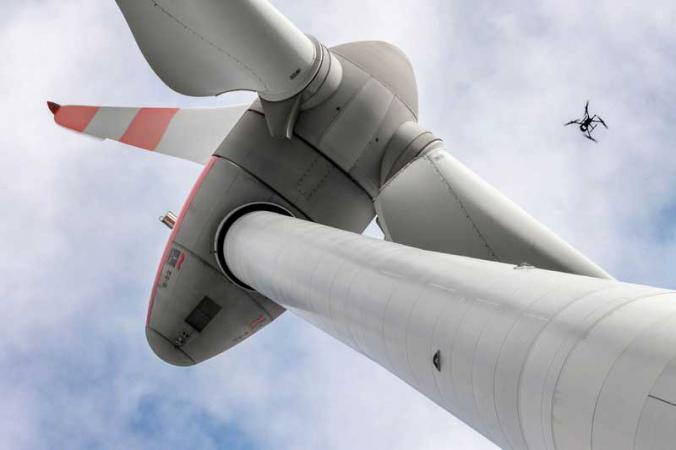LG Electronics Accelerates Smart Factory Solutions Business by Integrating AI and 66 Years of Manufacturing Expertise
The Production Research Institute (PRI), which has improved the production and manufacturing competitiveness of LG Group subsidiaries, is now extending its expertise to external customers.
Services offered include production consulting, equipment and operating system development, and training of technology personnel.
Although only in its early years, the operation has already achieved significant milestones. PRI expects to receive orders worth around KRW 200 billion from external customers for its smart factory solutions.
Key customers include battery manufacturers, car component manufacturers and logistics companies. LG plans to aggressively expand into industries where factory demand is growing rapidly, such as semiconductors, pharmaceuticals, biotechnology, and food and beverage. The goal is to develop the smart factory solutions business into a multi-billion KRW company by 2030, excluding revenues generated within the LG Group.
According to market research firm Precedence Research, the global market for smart factories is forecast to grow from $155.61 billion this year to $268.46 billion by 2030.
770TB of manufacturing data and over 1000 patents
LG has accumulated vast amounts of manufacturing data and know-how over 66 years of factory design, construction and operation. In the last decade alone, the company has amassed 770 terabytes (TB) of manufacturing and production data, the equivalent of approximately 197,000 high-definition movies (assuming each movie is 4GB). The company's competitive advantage is also based on its various key manufacturing technologies that are essential for smart factory assembly, and PRI has filed more than 1 000 patents related to smart factory solutions.
Production efficiency directly linked to business profitability
Smart factory solutions focus on minimising even short delays between processes or the smallest errors. For example, LG's refrigerator production line in Changwon produces a refrigerator every 13 seconds. A ten-minute delay on the production line would result in a production shortfall of 50 refrigerators. Assuming a price per refrigerator of 2 million South Korean won, a 10-minute delay means a loss of 100 million South Korean won.
The impact is even more significant for products with faster production speeds. Therefore, solutions that minimise delays in all processes - from the seamless delivery of multiple components to assembly, packaging and inspection - are essential.
A digital dual solution for the entire value chain
Production system design and operational solutions use real-time simulations with Digital Twin technology. A virtual replica identical to the real plant is created before the factory is built, allowing customers to preview the production and logistics flow. This allows for optimal efficiency in factory design.
During the operational phase, real-time data analysis helps to detect bottlenecks, faults and malfunctions in the production line in advance, thus improving productivity.
Autonomous mobile robots and collaborative robots
LG's various industrial robot solutions for factory automation offer significant benefits. Autonomous mobile robots (AMR) are equipped with cameras, radar and LiDAR sensors to sense their environment and deliver parts and materials. It navigates efficiently and avoids workers and obstacles through autonomous driving.
The Mobile Manipulator (MM), which combines a multi-joint robotic arm and AMR, can seamlessly automate a variety of tasks. It is capable of a variety of functions such as assembly, fault inspection and transporting parts and materials. It can also replace the batteries of nearby AMR robots when they run out.
Generative AI solutions for easy anomaly diagnostics
Solutions that help manage yield rates and ensure smooth operation of equipment are also very useful. Sensors installed throughout the plant detect abnormal signals such as vibration and noise caused by aging equipment or lack of lubrication. Big data is then used to determine the causes and recommend corrective measures.
Generative artificial intelligence based on large language models enables easy operation through voice commands. For example, saying "abnormal vibration on device A at 2pm" will record the abnormal signal on the server. The command "show recent abnormal vibrations and corrective actions" provides a list of fault types and past corrective actions in order of probability.
In addition, LG has developed a real-time detection system based on Vision AI. This system learns the plant's normal operating conditions and detects abnormalities such as temperature fluctuations and faults. It also improves plant safety management by identifying workers who are not properly wearing hard hats or work vests.
Accelerating the development of a forward-looking business model by leveraging Lighthouse Factory expertise.
LG's smart autonomous factories in Changwon, South Korea, and Tennessee, USA, have been recognised as Lighthouse Factories by the World Economic Forum. Since the introduction of the smart factory solutions, the Changwon factory has seen a 17% increase in productivity, a 30% improvement in energy efficiency and a 70% reduction in quality costs due to defects. Within the LG Group, PRI solutions are applied in manufacturing plants in more than 60 locations in 40 regions around the world.
Leveraging this internally and externally validated smart factory expertise in business projects is important for the commercialisation of intangible assets. LG is transforming its business portfolio, traditionally focused on hardware manufacturing, by integrating software and solutions into a forward-looking structure. This approach is expected to contribute significantly to the rapid growth of the company's B2B sector, one of the three key growth drivers in LG's 2030 Future Vision, especially as it targets a large number of external enterprise customers.
"By providing optimal smart factory solutions at every stage - from planning and design to construction and operation - we will become the ideal partner to support our customers throughout the entire production journey," said Jeong Dae-hwa, Director of LG PRI.









